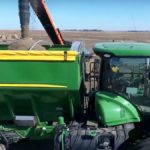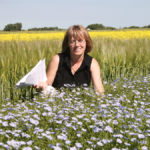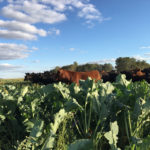
Tag Archives Soil

It’s cheap and plentiful but is elemental sulphur a fertilizer option?
Calgary company touts the benefits of its compost-based product

Getting phosphorus out of Lake Winnipeg and onto fields
Manitoba’s agriculture needs and waterways are on opposite sides of the phosphorus debate — or are they?

From convincing teachers agriculture was a real career to international honours
This retired AAFC soil researcher earned a long list of awards and honours while living on a farm and raising a family near Minnedosa

In the heart of the U.S. high tech sector, farmers fight for land
In wealthy Silicon Valley, a $500-million plan to save threatened farmland

Calculating a good cover crop plan
Set yourself up for success when it comes to cover crops

Soil degradation a costly global issue
About a third of the world’s soil is degraded, which has economic and food security implications

Mixed farmers need not apply for cover crop funding
The province says cover crop funding under Ag Action Manitoba only allows grazing on ‘stockless farms’

Carman event serves up common ground on soil health practices
Canadian and African agronomists shared perspectives on conservation agriculture at a recent Canadian Foodgrains Bank forum

Manitoba forage growers tapped for carbon project
The national project is the next step toward the CFGA’s goal of having farmers paid for storing carbon

VIDEO: Soil stewardship event digs into soil health
Foodgrains forum on soil conservation takes centre stage at Ian N. Morrison Research farm in Carman




